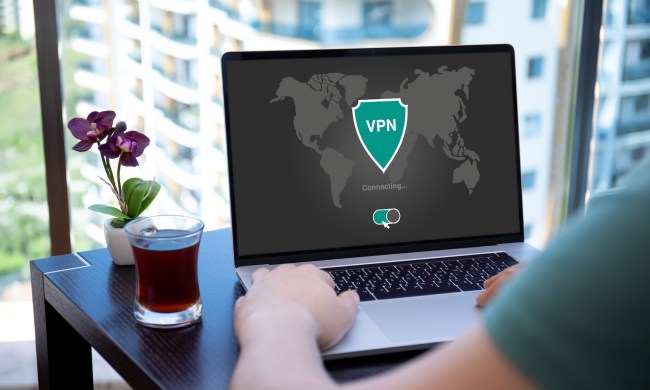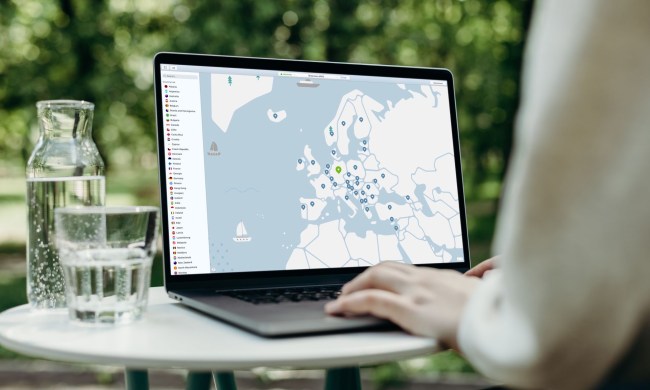There has been a lot of improvement in the VPN sector regarding user experience and functionality. Customers are spoiled for choice these days, with all major VPNs vying for space within the sector to claim a group of consumers as their own. This brings about innovation, and the acceptable industry standard becomes higher — which is great for customers.
A constant, nagging question and genuine concern for many years was: Do VPNs slow down your internet? While it’s impossible to generalize and distinctly claim that all VPNs follow a certain code, these days it is deemed somewhat socially unacceptable for a VPN to throttle speeds significantly. You will, of course, get minor differences, but generally, your internet will stay the same whether connected or not. Some of the best VPN services may even bypass your ISP’s malicious throttling practices and increase your speeds! However, if you’re wondering which VPN is the best for you, we’ve analyzed and tested some of the most popular ones out there for your convenience. Check out our results below.
What is the fastest VPN?
Before we began our test, we had to find out what our base internet connection was without any VPNs. This would be our control group and the standard we adhere to. We conducted these internet speed tests from Seoul, South Korea, and admittedly, internet coverage here is much quicker than, say, rural Idaho. It’s important to keep this in mind when reading this article — if you’re in an area with a bad internet connection and coverage or have an ISP that actively squashes your speeds, then you will have vastly different results.

Above is our base internet speed, with 5 ping, 64.66Mbps download speed, and 55.97Mbps upload speed. From here, we’ll be testing to see if NordVPN, ExpressVPN, and SurfShark slow down our speeds, and we’ll be comparing and contrasting these premium services to the free ProtonVPN plan.
NordVPN

First up was NordVPN, one of the most popular VPN services in the world today. We did an initial eye test and loaded a few pages, videos, and Netflix shows, and we can confidently say that we noticed no initial speed reduction. We were connected to NordVPN’s Seoul server and got 7 ping, 61.19Mbps download, and 25.10Mbps upload speed. The most noticeable difference was the upload speed, of course, and that will always take a dip when connected to a VPN. Unless you have a VPN with a special P2P server configuration, it will be extremely difficult to achieve the same upload speed as you would when not connected. Overall, though, we were extremely happy with the speeds when connected to NordVPN.
ExpressVPN

ExpressVPN does have a Seoul server, but for some reason, it wasn’t able to connect to the speed test service. We kept receiving faulty results when we tested — no matter what website we were on. Therefore, we connected to the next nearest server: Tokyo. That’s why we received a ping of 56ms, but the download and upload speeds weren’t significantly affected at 35.59Mbps and 24.37Mbps, respectively. Something interesting to note is that ExpressVPN changed our connection from Wi-Fi to a Local Area Network connection. This may have played a part in why the tests were skewed, and if we could retest with ExpressVPN’s Seoul servers, we expect to see much faster speeds. On the initial eye test, however, we didn’t really notice any sizeable speed reductions.
Surfshark

The Surfshark test showed very surprising results. When we loaded websites, videos, and Netflix shows, we didn’t see any speed reductions (if there were any, they were minimal at best). However, when we started up the internet speed test, we saw shocking results of 345ms ping, 26.77Mbps download, and 8.19Mbps upload speeds. Again, for American or European users, the results may be much better as Surfshark has much more focused operations on the Western side of the globe. For citizens in other countries who rely on VPNs for a stable connection, though, these results may be a little worrying.
ProtonVPN

Now, for what everyone has been waiting for: The free data subscription from ProtonVPN. We were pleasantly surprised with what we found when we tested this service. Due to the limitations of the free service, ProtonVPN does not have a server in South Korea, so we had to connect to the nearest one in Japan. Of course, our ping suffered a bit due to changing our geographical location, but not by a lot. We got 56ms ping, 29.73Mbps download, and 14.73 upload speeds. That is amazing for a free VPN with unlimited bandwidth, and we would wholeheartedly recommend those who want a reliable VPN try ProtonVPN out. If you’re wondering if free VPNs are safe, then that, unfortunately, depends on the company you go with. At Digital Trends, however, we vet each product we mention and can guarantee the validity of each one.
Do free VPNs throttle speeds?
Free VPNs are more likely to throttle speeds than premium ones simply due to the fact that you are not a paying customer. There aren’t many free VPNs out there that are worth your time, but we’ve gone through them all to compile a list of some of the best free VPNs. For this article, we tested a few paid VPN subscription plans to compare and contrast internet speeds to determine which one is the best for you. It’s important to note that for free VPNs plans, you may live in a country that does not have a VPN server for you (which is what happened to us as we were testing it). In that case, you’ll be connected to the nearest server.
One free VPN we’ve come to appreciate is ProtonVPN. What’s so great about this service is that, no matter if you’re a paying customer or not, you have unlimited bandwidth. While the free version understandably comes with fewer features than the paid one, we’re sure that many people can look forgive that in favor of free data. We will be comparing and contrasting premium VPNs with ProtonVPN to see the difference in internet speeds.



